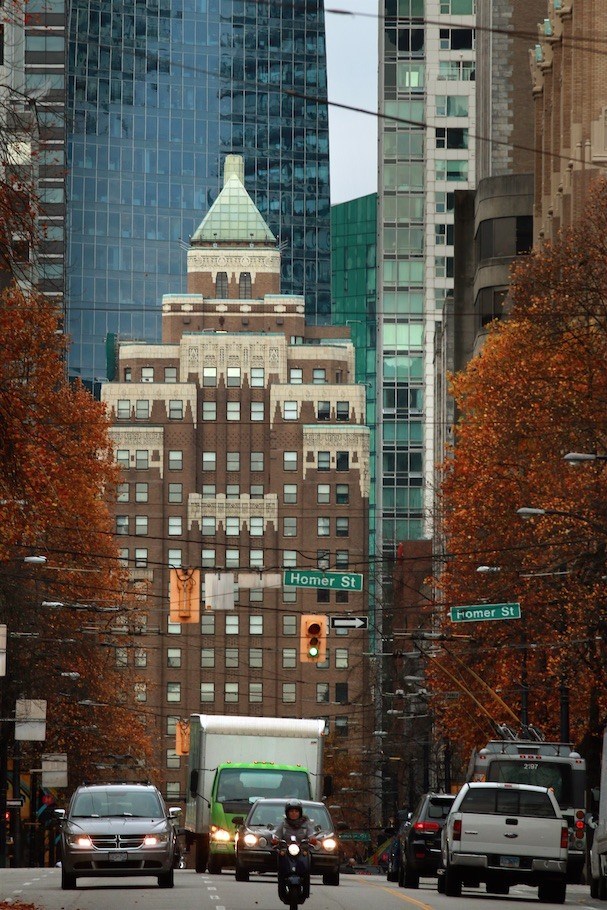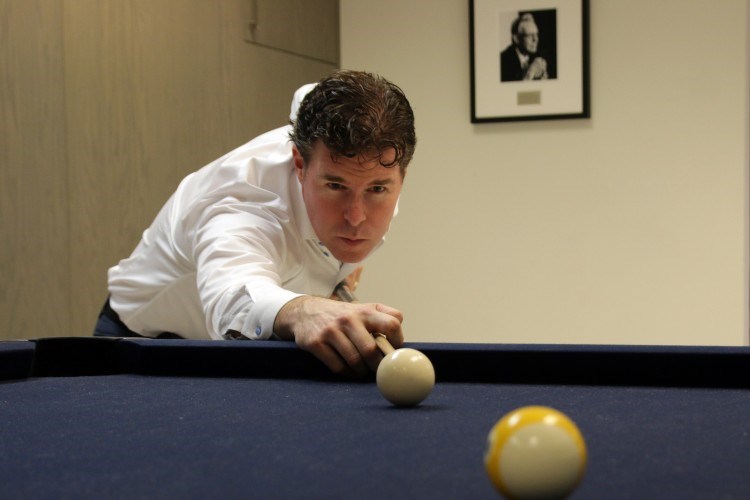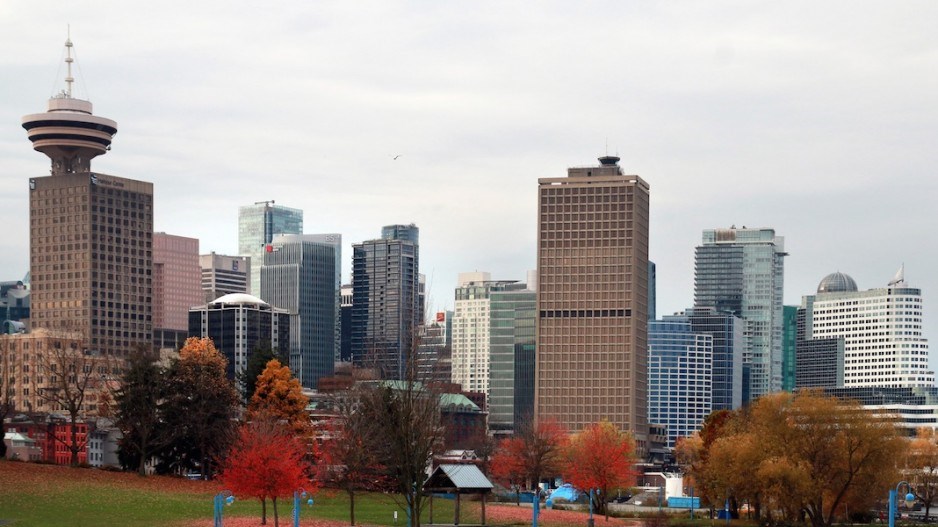Vancouver is facing an office space crunch with declining vacancy rates and rising lease rates. While more supply is on the way, some are concerned that the lack of available space will push Vancouver off the radar screens of international companies seeking to expand.
Amid the shortage, some developers, such as Ryan Beedie, have told Business in Vancouver that they are not interested in building office space because other real estate classes are more stable and more profitable.
“A successful downtown needs a successful office sector, and a successful central business district [CBD],” said former City of Vancouver chief planner and Toderian Urbanworks principal Brent Toderian, who is concerned that the lack of available office space will hurt the city.
He said the challenge in planning CBDs is in determining how to help them grow in the long term while simultaneously enabling them to respond quickly to changes in vacancy rates.
CBDs “need to be both future looking and nimble,” he said. “It’s hard to be nimble when it takes time to build something, but the best a city can do is make sure its planning house is in order ahead of time.”
Smart planning, which proactively aims to time construction with demand, is therefore crucial, he said.
Downtown Vancouver’s office vacancy rate sank to 3.9% in the third quarter of 2018, down from 4.1% three months earlier and 4.6% at the beginning of the year, according to Colliers International.
A research note from the company noted that no options exist for large tenants seeking immediately available, contiguous office space of more than 30,000 square feet in a triple-A-class building in downtown Vancouver. Average asking rates have climbed to $36.15 per square foot, up from $33.57 per square foot during the past six months.
New office towers are quickly being filled.
Credit Suisse spent about $200 million to build the 369,000-square-foot Exchange tower on speculation last year. After completion, much of the tower was converted into the 202-room Exchange Hotel Vancouver, which opened in August, but 138,560 square feet of office space went onto the market late last year and has since been fully leased.
(Story continues below)

(Image: The Marine Building was the tallest building in the British Empire when it opened in 1930 – one year after the original Vancouver Stock Exchange building, which was recently redeveloped to be the Exchange tower | Rob Kruyt)
The good thing is that there are office projects under construction – the largest of which is QuadReal’s 1.13-million-square-foot tower complex above Vancouver’s former main post office, at 349 West Georgia Street.
GWL Realty Advisors is partway through building its 33-storey, 371,000-square-foot office tower at 753 Seymour Street, which is set to be complete by 2021.
And at 400 West Georgia Street, Westbank and Allied Properties Real Estate Investment Trust are building a 345,000-square-foot tower that is fully leased to companies such as Apple Inc. (Nasdaq:AAPL), according to Colliers International senior managing director Maury Dubuque.
“People [five years ago] were saying, ‘Build it, and let us look at it. Then we’ll think about leasing it,’” he said. “Now, that’s far from the case.”
Dubuque said he knows of one large technology company that is seeking 200,000 square feet of space in downtown Vancouver. A second company, he said, is U.S.-based and is seeking 250,000 square feet of office space in the city. Both multinationals face challenges, he said.
With demand for office space high across Metro Vancouver, property owners are eager to redevelop and cash in.
“We’re very bullish about the office [market] mostly because I think the technology business has superseded the old pulp, paper and mining businesses,” said Low Tide Properties owner Chip Wilson, whose local property holdings are about 80% office space and include many sites in East Vancouver.
He told BIV that he sees Metro Vancouver’s office property market as “very solid” because the region is increasingly what he called the “conduit for Canada,” with many technology firms eager to locate in the city.
Amazon.com Inc. (Nasdaq:AMZN), for example, employs about 1,500 workers in downtown Vancouver office towers at sites such as Telus Garden.
Future Amazon hiring by 2020 is set to include staff for a 1,000-employee office at 402 Dunsmuir Street. Amazon also plans to hire 3,000 employees to work in space at QuadReal’s redevelopment when that project is complete, likely by 2022.
Despite the hot office space market, some developers who have built fortunes building industrial and residential real estate are not keen to pivot to development of office properties.
Beedie owner Ryan Beedie, for example, told BIV that he would rather stick to industrial and residential projects.
(Story continues below)

(Image: Beedie principal Ryan Beedie shoots pool at his office's headquarters | Rob Kruyt)
“In general, I don’t like the office market,” said Beedie, who made headlines on November 13 for donating $50 million to create a foundation that will provide scholarships for disadvantaged students.
“I think of the ups and downs. The office market is strong now, but for years [it wasn’t]. You’ve got tenant turnover. If someone leaves, you’ve got to do new tenant improvements. The vacancy cost is huge. The commissions are huge. In the long term, it is not the best asset class to be in. If we’re in it, it’s because there are certain sites where the owner has to do it. It’s not a market that we would seek out. I would have very little interest in buying a site and doing an office tower, for instance. That holds no appeal to me whatsoever.”
Toderian, however, said he was not concerned about Beedie’s absence in the office market.
“You have developers like Westbank building office projects, and the last time I checked, Westbank isn’t stupid,” he said. •




